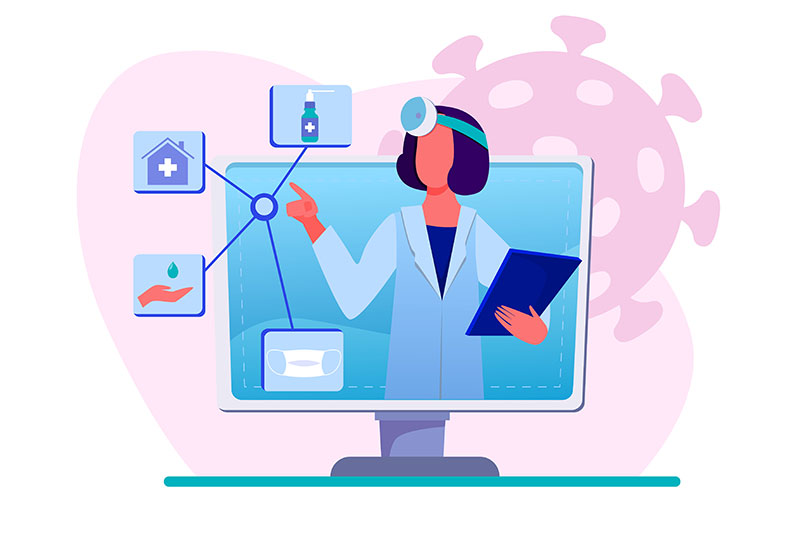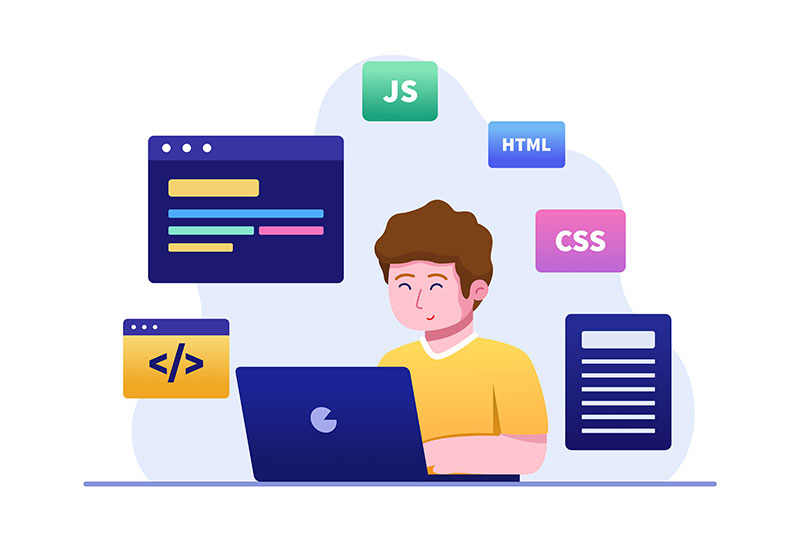How Online Programs Are Training People for In-Demand Jobs
Online programs are transforming how people learn, offering flexible, career-focused training without the need to step into a traditional classroom.
Whether you’re looking to change careers, gain new skills, or work independently, the right program can open doors faster than you think.

4 Fields That Are Benefiting from Online Programs
The job market right now is full of contradictions. There are layoffs in some sectors, hiring freezes in others, and yet millions of roles remain unfilled in fields that keep society running.
Healthcare, education, and cybersecurity aren’t just growing; they’re facing workforce shortages that threaten basic services.
This isn’t just a skills gap. It’s a staffing crisis. And while traditional degrees still have their place, they’re too slow, too expensive, and too rigid to meet the urgency of the moment.
That’s where online programs step in. Not the generic kind but targeted, job-ready certifications and degrees designed to get learners into the workforce fast.
Let’s walk through four fields desperate for trained professionals, and how online learning is helping plug the gap.
– 7 Reasons to Pursue Course Certifications
1. Nursing
The nursing shortage has been brewing for years, but the pandemic pushed it into overdrive.
Hospitals are burning out their existing staff while struggling to attract new hires.
The U.S. Bureau of Labor Statistics projected an average of 194,500 openings for registered nurses each year in this decade. And that number doesn’t even account for recent retirements and attrition.
Online nursing programs, especially RN-to-BSN and accelerated second-degree options, are helping fast-track qualified candidates into clinical roles.
Hybrid ABSN nursing programs (Accelerated Bachelor of Science in Nursing) are a great example.
Even for entry-level roles like Licensed Practical Nurses (LPNs), online and hybrid programs make it possible to train around a busy schedule.
For people switching careers or returning to the workforce after a break, this flexibility is a game-changer.
Besides academic requirements, aspiring professionals must understand the cultural considerations in nursing.
They must develop cultural competence, a skill and attitude that enables them to deliver respectful care across cultural barriers.
Cultural competence improves patient-carer relationships, reduces health disparity between groups, and enhances health outcomes.
In the long run, it serves as the foundation of a fair and inclusive healthcare system.
– Blended learning: a combination of online and face-to-face learning
2. Cybersecurity
Cybercrime is no longer a distant, technical threat. It’s hitting hospitals, school systems, banks, and utility grids, and it’s getting worse, as FBI reports suggest.
The 2024 Internet Crime Report logged over 859,000 complaints of suspected internet crime.
The reported losses climbed to over $16 billion, marking a 33 percent increase from the previous year.
At the same time, the workforce needed to fight back isn’t there. New data shows that the U.S. is short nearly 265,000 cybersecurity professionals. It’s a massive talent gap that leaves critical infrastructure exposed.
That’s why cybersecurity analysts and information security professionals are some of the most sought-after workers in tech today.
The problem? Traditional universities can’t graduate talent fast enough, and most employers can’t afford to wait four years to fill urgent roles.
Online programs, bootcamps, certification programs, and associate degrees in cybersecurity are stepping up to meet the demand.
These programs focus on real-world, job-specific skills like setting up firewalls, running penetration tests, and analyzing threats, and they’re built for speed.
What this really means is if someone is tech-savvy, detail-oriented, and willing to learn, they could be job-ready in way less time.
It’s a fast path into a field with strong demand and long-term growth.
3. Medical Billing and Coding
This is one of those hidden professions that doesn’t get a lot of spotlight, but it’s absolutely essential.
Every diagnosis, treatment, and procedure needs to be translated into standardized codes for insurance purposes. And that’s where medical billing and coding professionals come in.
It’s not just about data entry. It requires a solid grasp of medical terminology, anatomy, healthcare regulations, and billing software. And demand for this role is only growing.
According to NurseJournal, medical coders and billers are increasingly needed as the population ages, telemedicine expands, and healthcare technology becomes more complex.
The good thing is that you don’t need a clinical background or a four-year degree to get started.
Online programs in medical billing and coding are designed to be practical and efficient. Many can be completed in four to nine months and include prep for certification exams like the CPC (Certified Professional Coder).
The job is also often remote, making it a great option for people needing location flexibility, especially parents or caregivers re-entering the workforce.
– 7 Key Considerations to Create an Online Medical Coding Course
4. Education Support Roles
Public schools are facing more than just a teacher shortage. They are also struggling to find enough qualified support staff.
Teaching assistants, classroom aides, and early childhood educators are in short supply.
The gap is even more severe in under-resourced districts and rural areas, where recruitment and retention are especially difficult.
These roles are vital to keeping classrooms running smoothly. They help manage student behavior, support lesson delivery, and give children more one-on-one attention.
Without them, the pressure on full-time teachers increases and student outcomes can suffer.
Online certificate programs in early childhood education or paraprofessional training offer a fast, affordable entry point.
They don’t require a teaching degree. They’re flexible, which makes them ideal for career changers or stay-at-home parents looking to rejoin the workforce.
Strong communication skills and patience are often enough to get started.
For some, these roles can also become a pathway into full teaching.
Once they gain experience and confidence, many choose to pursue formal credentials and move up within the education system.
– 8 things you need to know about online education
Here’s What Else You Need to Know About Online Programs
If you’ve been out of school for years, the thought of taking an online course can feel intimidating.
Will you struggle to keep up with the technology? Will it feel like being back in a high school classroom filled with assignments that don’t really matter?
The good news: not necessarily.
Many modern online programs are designed specifically for adult learners — people with jobs, families, and busy schedules, not just recent high school graduates. This means you can expect:
- No unnecessary busywork. Assignments are focused on real-world applications.
- Clear instructions. Lessons are broken down into manageable chunks so you can learn step by step.
- Tech support. If you’re unfamiliar with learning platforms, help is usually just a click away.
In fact, many programs allow you to preview a course module before committing, so you know exactly what you’re signing up for.
Also, like we said, one of the biggest benefits of online education today is its direct connection to in-demand careers.
Fields like medical billing and cybersecurity often allow for self-employment or contract work once you’re certified.
Some programs even include business basics or job placement support to help you strike out on your own.
Do You Need Expensive Equipment? Probably Not.
A common concern is cost — not just tuition, but whether you’ll need special gear to participate.
The reality is that most reputable online programs run on standard devices like laptops, tablets, or even smartphones.
Classes are usually hosted on SaaS platforms that don’t require fancy software.
You might choose to invest in a good pair of headphones or an extra monitor for comfort, but these are optional.
In certain fields, like design or cybersecurity, schools often provide free or discounted student software licenses, saving you hundreds of dollars.
– Frequently Asked Questions About SaaS
Why Online Learning Works for Career Changes

Not everyone needs to go back to school for a four-year degree. In fact, for many people, the most effective approach is targeted education — short-term, flexible training that’s directly tied to current job openings.
Well-designed online programs can provide exactly that. They make it possible to train for careers in healthcare, technology, education, and other fields that are not only in demand but essential to society.
For anyone facing an unstable job market or wondering how to pivot without taking on massive debt or burning out, online learning can be a game-changer.
If you’ve been waiting for the “right time” to make a change, consider this: opportunities in many industries are evolving faster than traditional education can keep up.
With the right online program, you can start gaining the skills you need in weeks or months, not years.
So, maybe it’s time to stop scrolling aimlessly and start exploring purposefully. The next step might already be online.
A complete e-Learning platform, Coursify.me is the ideal solution for those who want to create, sell and promote courses on the internet.
Serving companies and professionals in more than 60 countries, the platform is a dynamic and customizable Learning Management System.
– What is a Learning Management System (LMS)
Visit our website, test the platform and start changing your future.

